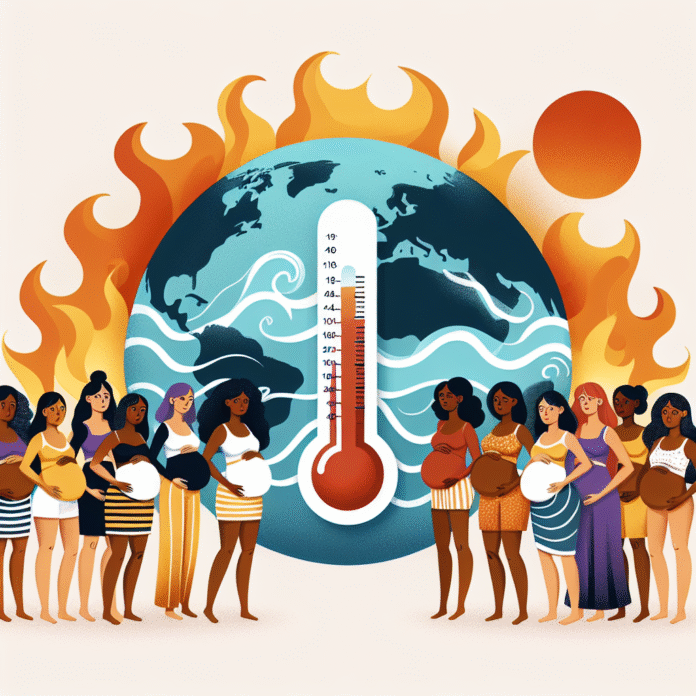Global Pregnancy Risks Due to Rising Heat from Climate Change
Pregnancy Risks from Heat Surge Worldwide as Climate Warms
As global temperatures continue to rise due to climate change, the implications for maternal and fetal health are becoming increasingly concerning. Recent studies have highlighted the potential risks associated with extreme heat during pregnancy, emphasizing the need for awareness and proactive measures.
Understanding the Risks
Pregnant individuals are particularly vulnerable to heat stress, which can lead to a range of complications. Elevated temperatures can result in dehydration, heat exhaustion, and heat stroke, which pose serious risks not only to the mother but also to the developing fetus. Research has shown that exposure to high temperatures during pregnancy is associated with increased rates of preterm birth, low birth weight, and even stillbirth.
Climate Change and Heatwaves
The frequency and intensity of heatwaves are expected to increase as climate change progresses. Regions that previously experienced mild summers are now facing extreme temperatures, putting pregnant individuals at even greater risk. Vulnerable populations, such as those in low-income communities or areas with limited access to healthcare, may be disproportionately affected by these changes.
Preventative Measures
To mitigate the risks associated with heat exposure during pregnancy, experts recommend several preventative strategies. Staying hydrated, avoiding strenuous activities during peak heat hours, and finding cool environments are crucial steps pregnant individuals can take. Additionally, healthcare providers should emphasize the importance of monitoring temperature and recognizing signs of heat-related illnesses.
Long-Term Implications
The long-term implications of heat exposure during pregnancy extend beyond immediate health risks. Children born to mothers who experienced high temperatures during pregnancy may face developmental challenges and increased susceptibility to chronic health conditions later in life. This underscores the importance of addressing climate change as a public health issue.
Community and Policy Action
Addressing the health risks associated with climate change requires a multifaceted approach. Communities can implement heat action plans that include public cooling centers, education campaigns, and resources for vulnerable populations. On a larger scale, policymakers must prioritize climate action initiatives that aim to reduce greenhouse gas emissions and promote sustainable practices.
Conclusion
As the climate continues to warm, understanding and addressing the risks associated with heat exposure during pregnancy is paramount. By raising awareness and implementing effective strategies, we can help protect maternal and fetal health in the face of an ever-changing climate. Collective efforts at the community and policy levels are essential to ensure that the most vulnerable populations are equipped to navigate the challenges posed by rising temperatures.


